Traveling responsibly is more important than ever before. Nobody is perfect, but there are small things you can do on your travels to ensure you aren’t causing harm. These tips will help you make a positive impact wherever it is in the world you may be.
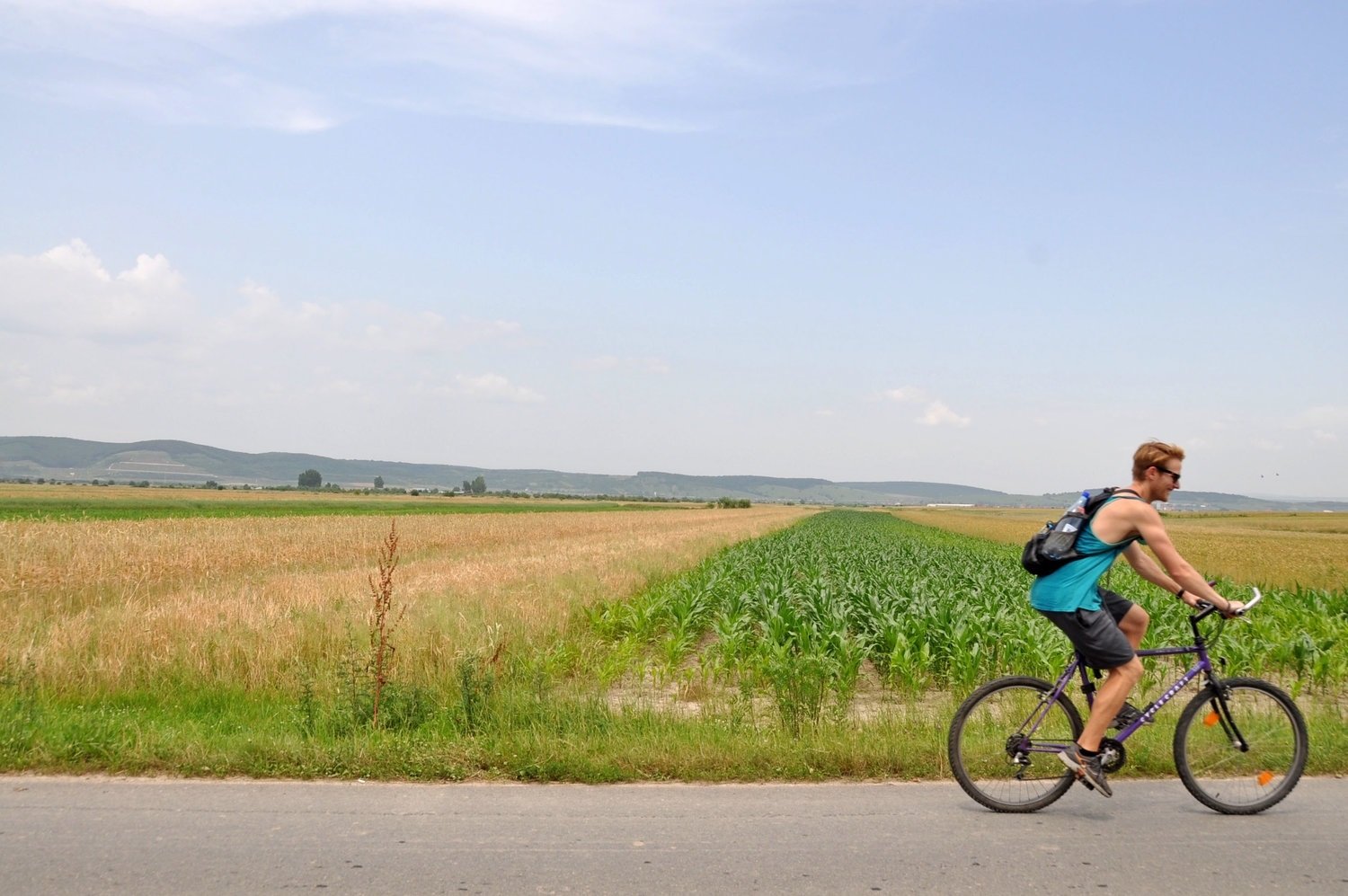
Traveling ethically is something we are passionate about. We aspire to travel in a way that makes us proud in every single place we visit.
That said, we are far from perfect. We’ve revealed travel’s dirty secret before, and have acknowledged that traveling can sometimes do more harm than good.
We have found that responsible tourism is not always easy. It can be confusing. There are fuzzy lines, and we screw up. A lot. But it’s a learning process, and little by little we’re getting better.
We are more conscious about the decisions we make on the road (as well as at home), and want to share what traveling responsibly looks like to us.
We truly think that most people have good intentions when they travel, but often don’t know where to start. These tips will help you make a positive impact wherever your wandering soles take you.
Support the Local Community
Start by thinking about how your presence is impacting the local community, especially in developing regions.
1. Eat local
It’s fun to try the famous restaurants recommended by Lonely Planet or ranked highly on TripAdvisor, but try some small, Mom-and-Pop shops too. This way, you’re contributing to small businesses where your money is needed more than the eateries that are always bustling with visitors.
Bonus: Often times this is where you’ll find the tastiest and most authentic local fare!

2. Shop local
Shop at local food markets whenever possible. Buy souvenirs from artisan as opposed to big shops. Spread your money around, and support the “little guy.”
3. Find non-profits
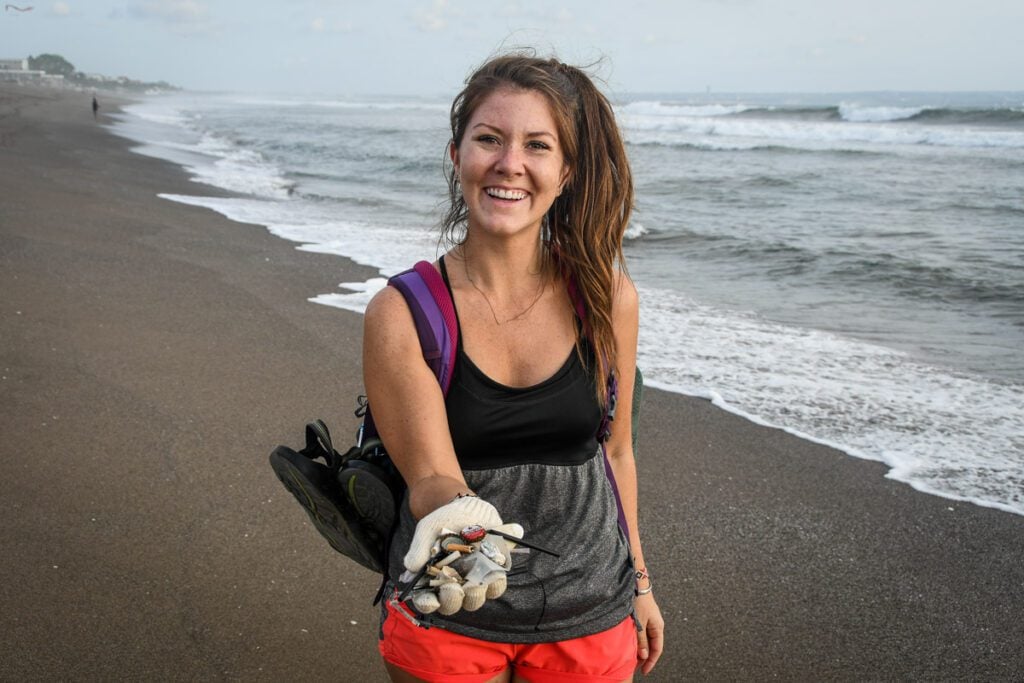
Research non-profits in the area you are visiting and support in any way you’re able.
For example, along our travels we’ve found many places there are restaurants that hire staff of all abilities, serve only locally-produced food, or give a portion of proceeds to charity.
You can participate in beach clean ups with Trash Hero throughout many places in Southeast Asia, and in some European countries you can rent a kayak for free with Green Kayak in exchange for collecting trash you find in the water.
4. Share your experience
Pay it forward and shout out great companies. When a restaurant, hotel or tour organization is doing good things (paying staff fairly, protecting the environment, giving back to their community), tell the world!
Write them a glowing review on Google Maps, and if you’re active on social media share your experience there too. If something just doesn’t feel right about a company, share that as well. The only way we as travelers can make informed decisions is by hearing from others’ experience.
Help others choose good companies. With our support, those companies doing the right thing will grow while those following unsavory practices will realize they need to change.
Think About Wildlife
Interacting with animals on your travels can be amazing, but do so with caution…
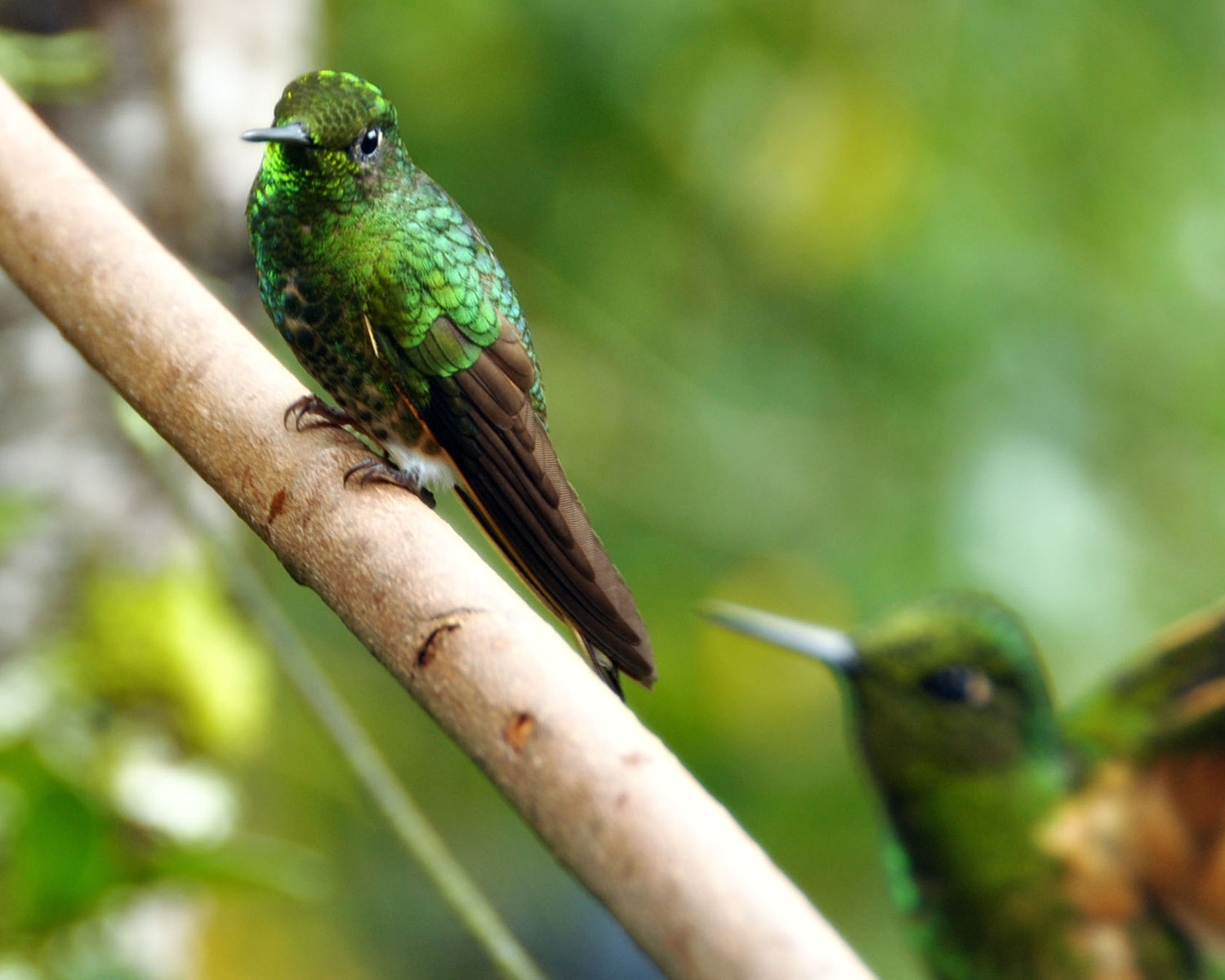
5. Be wary of animal attractions
Do thorough research on any attraction that involves animals.
More often than not, they are destructive to the creatures involved. When you partake in these activities your money supports the harm of animals, and this tells the people running these attractions that it’s okay.
Do your own research about animal attractions that interest you and make a well-informed decision. A few of the popular animal tourism attractions that we have chosen NOT to support are:
- Swimming with whale sharks in the Philippines
- Riding on the back of elephants anywhere in the world
- Visiting Tiger Kingdom in Chiang Mai
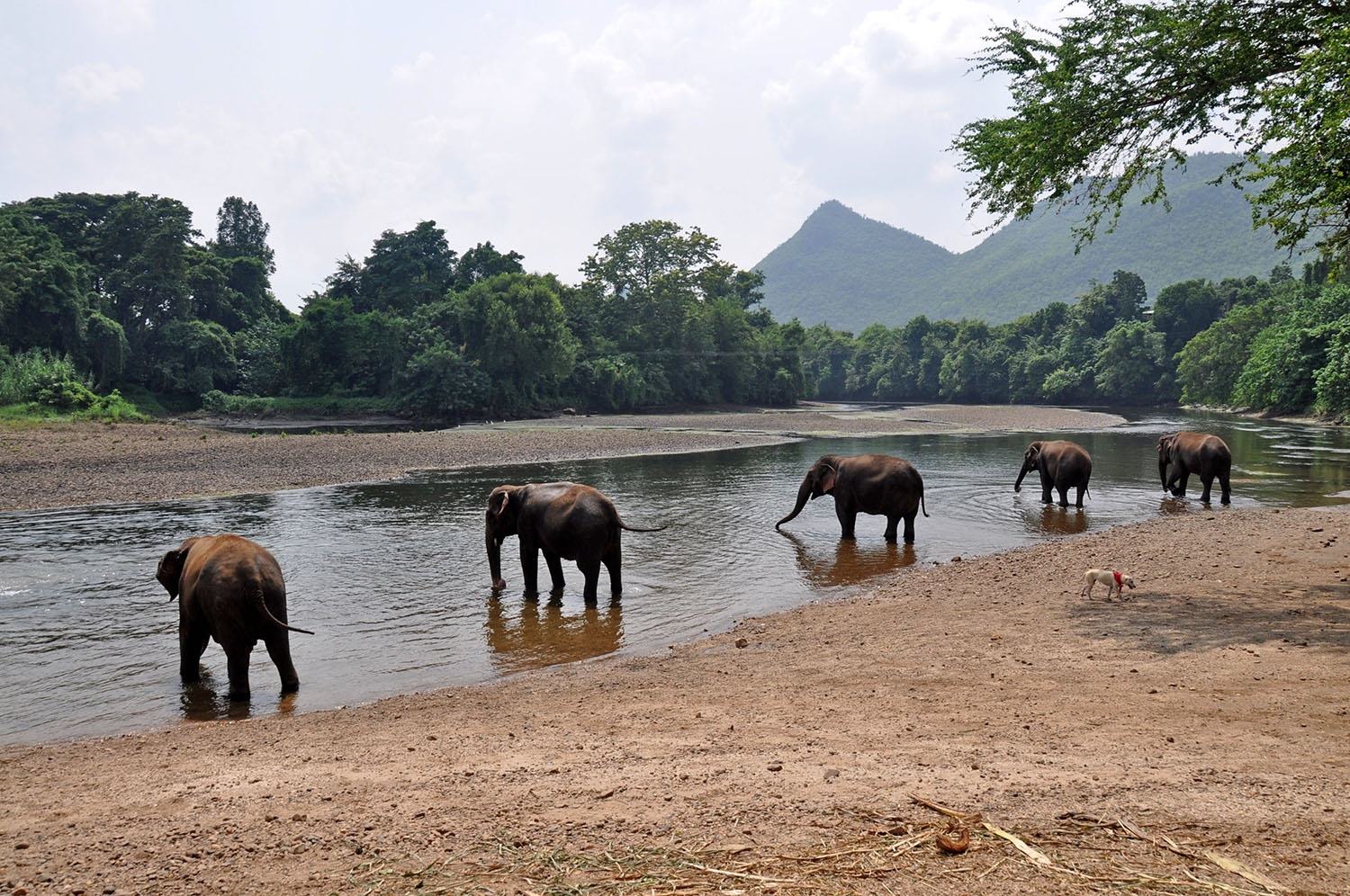
6. Don’t feed wild animals
No explanation needed.
7. Speak up
If you see animals being treated poorly, say something (respectfully, of course). And tell others so they are informed before supporting it as well. Everybody makes mistakes. But speaking up can prevent others from supporting animal mistreatment too.
For example, while we were in Bali, we tried the famous “cat poo coffee”, but felt uneasy seeing the luwaks (weasel-like creatures) kept in cages and fed a diet consisting exclusively of coffee beans. We shared our experience so others can decide if they want to support this type of business or not.
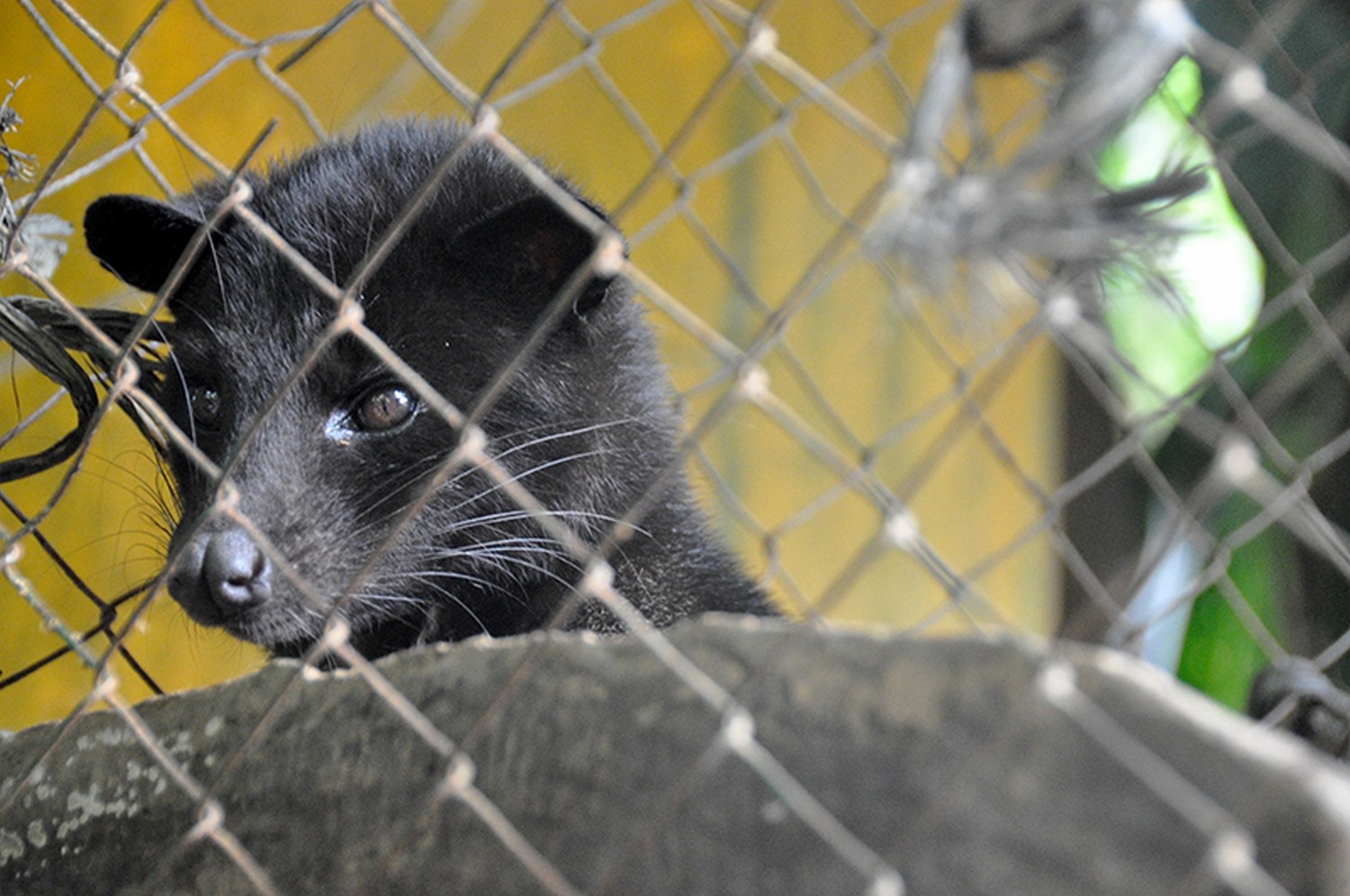
Be Kind to the Environment
Travel inexplicably has an impact on the environment. The good thing is there are many small things you can do that add up and make your presence less of a negative impact.
8. Follow the rules
When you’re hiking, be sure to respect the rules and follow the signs.
If it says “no pets allowed” don’t ignore it and bring your dog anyway. And if there are signs that say “stick to the trail”, please respect them.
These rules are often in place for a very important reason.
- For example, dogs may be a threat to local wildlife (or vice versa).
- And people hiking off trail can lead to erosion or the trampling down of native vegetation.
- It can also simply be a safety issue, and putting yourself at risk can put others’ lives on the line if you need to be rescued.
9. Don’t litter
Ever. Even if the locals do. For every local who litters, there are many who don’t.
Seeing a foreigner throw trash on the ground in their home can be seen as very disrespectful.
Did you know? Even littering fruit peels is a big no no. If an apple didn’t grown in the forest you’re hiking in, do NOT toss the core off the side of the trail. Not only is it not pretty for other hikers to look at your decomposing waste, but it is not native to that environment and it could be harmful to animals in that region to ingest.
10. Drink from the tap
Use a water purifying system to cut down on plastic bottle waste. (We love our Grayl water bottles and our SteriPen for this purpose!)
11. Recycle when possible
For some reason, it’s easy to forget about recycling when you’re not at home. We know this all too well. But we are trying to make a conscious effort to remember to recycle no matter where in the world we may be.
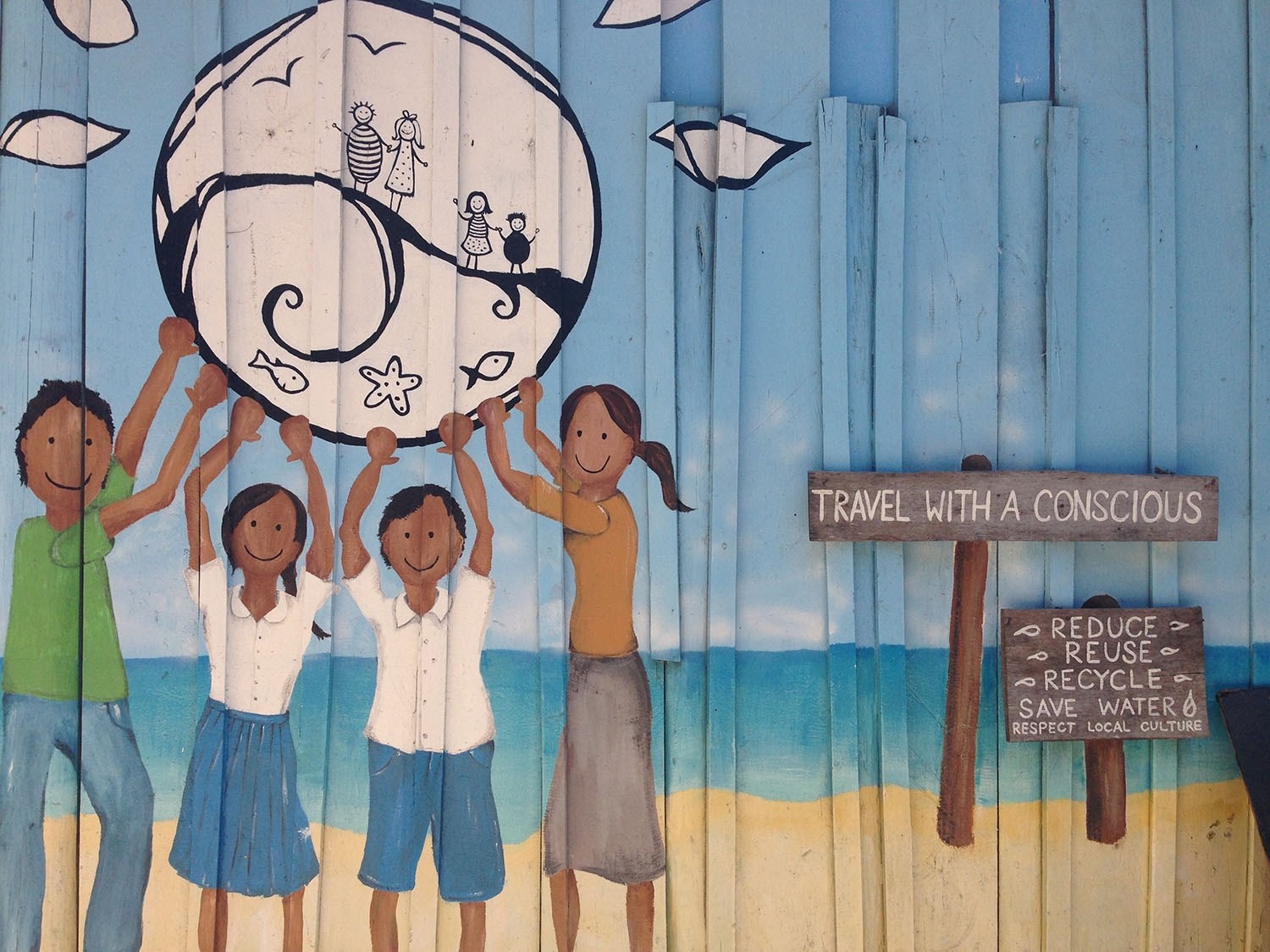
12. Lights out
Save electricity by turning off the lights and air-conditioning when you leave your room.
13. Pack your own reusables
We aren’t perfect, but we’re trying our best to reduce the amount of single-use plastic we use.
This means we try to pack our own reusable utensils, straws, water bottles, and shopping bags.
Insider Tip: Learn how to say “no straw, please” in the language of the country you’re visiting. It works wonders and is so much easier than hand gestures!
14. Order food wisely
Only order as much food as you can eat and try not to waste. A lot of the time our eyes are bigger than our stomachs, so we start slow and know that we can always order more if we’re still hungry.
15. Give maps a second life
After using a map or brochure of a city, leave it at your hotel desk for future guests to use instead of throwing it in the trash.
Better yet, download your location in Google Maps on your phone when you’re in wi-fi, turn on your GPS tracking abilities, and you’ll be able to get your location even when you’re out of cell service. And there’s no paper wasted!
16. Try to conserve water
Take short short showers and turn the tap off when you’re brushing your teeth. In many parts of the world, clean water is scarce. This is a luxury many of us take for granted. Limit your usage accordingly.
17. Use public transportation
Hop on the metro, the train or a bus when possible to minimize your impact on the environment. Or even better yet, rent a bicycle for an excellent way to see a city while getting a bit of exercise in!
18. Read up on Leave No Trace principles
Try your best to follow these guidelines at home or abroad.
19. Use reef safe sunscreen
Did you know that most sunscreens contain chemicals that bleach coral reefs? Whether you’re on a scuba diving holiday or you just want to go for a swim, be sure to use a sunscreen labeled as “reef safe” if you plan on being in the ocean at all. The fishies and coral they call home will thank you!
Tip: You don’t need to throw away all the sunscreen you already have (thus creating waste!). But only use it when you won’t be going in the water.
20. Consider carbon offsetting
There’s no denying the toll air travel takes on the environment. It is a huge source of pollution, and by flying around the world you are contributing to it. And so are we. (Have we mentioned how truly imperfect we are yet?!)
The next time you book a flight, consider offsetting your carbon footprint. Basically, this means for each ton of CO2 your flight will emit, you can prevent the same amount from polluting the atmosphere elsewhere. Don’t worry, there are programs that can calculate your carbon emissions for you, and this article explains carbon offsetting and some reputable organizations you can donate to.
Take this article everywhere you go with this condensed, offline version E-book. Enter your email and we’ll send it to your inbox right away.
Respect the Culture
Whenever you’re traveling in a region far from home, you’ll want to do some research ahead of time…
21. Respect the dress code
Be considerate of what clothing is appropriate in the country you’re visiting, especially at holy sites. Pay attention to how locals are dressed, or ask someone at your hotel what’s typical if you’re unsure.
Tip: When entering many temples, mosques or churches around the world, it’s recommended that you cover your shoulders and knees, and sometimes your head as well. We always carry a sarong in our daypack so we are prepared at all times!
22. Follow the rules
Pay attention and respect signs at tourist attractions. When it says, “Don’t climb” – DON’T CLIMB. When it says, “Don’t take photos” – DON’T TAKE PHOTOS. It’s simple, but many tourists overlook this. Often times these signs are in place for a good reason: to reduce erosion, to protect a holy site for future generations, or even to keep people safe. Respect these rules.
23. Remember that you are a visitor
Imagine that you are a guest in someone else’s home. Act as such.
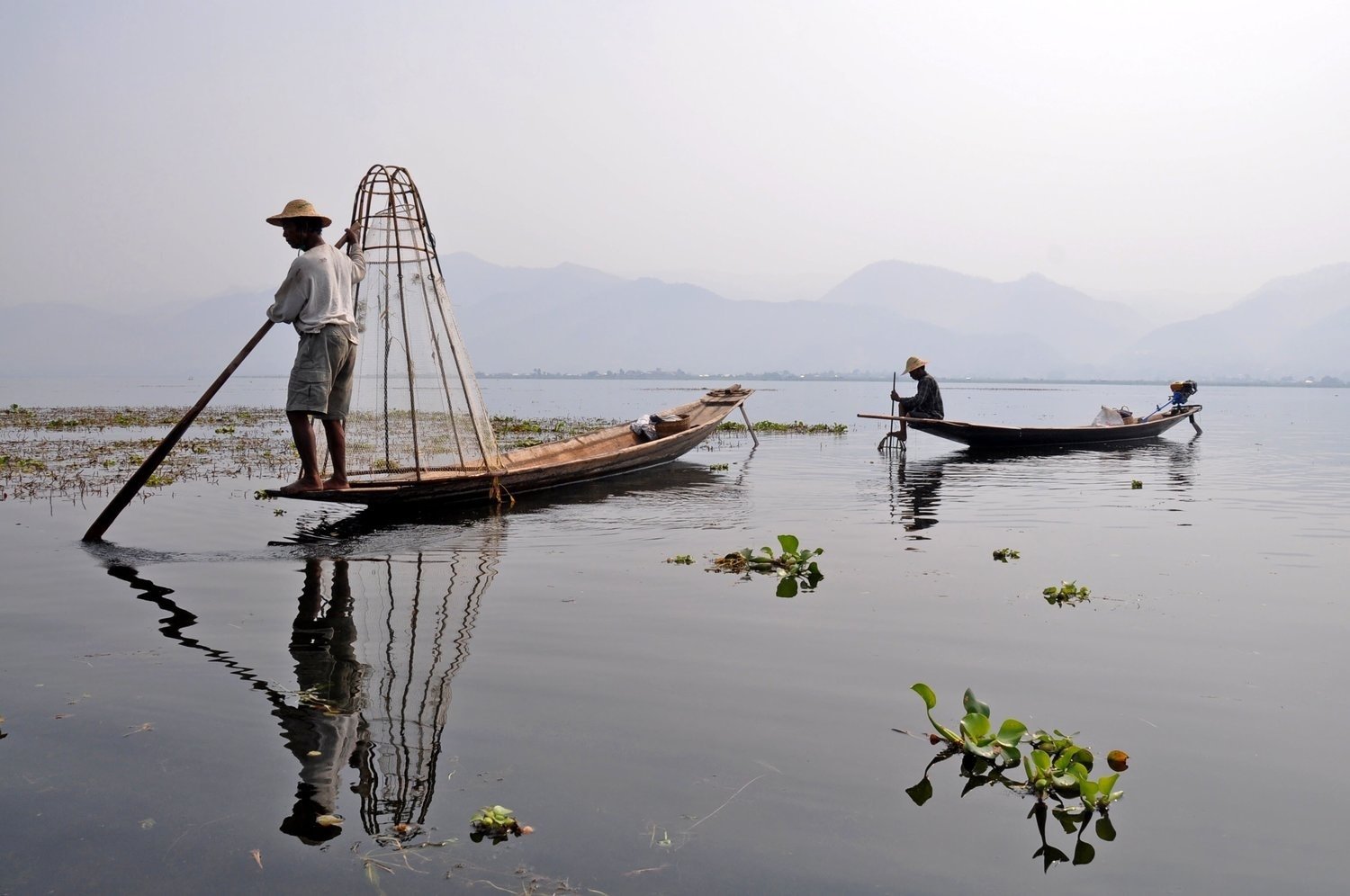
24. Seek out cultural experiences
While lying on the beach with a cocktail in hand is why many people vacation (and that’s totally fine!), but it will not help you understand the place you’re visiting.
Try to have at least one meaningful encounter like taking a cooking class, visiting an important museum or participating in a homestay. It could even be as simple as starting up a conversation with a local. While this may not be possible on every single trip you take, these experiences are what you’ll remember.
Plus, this is the best way for us to learn about and understand people who may be from different backgrounds than ourselves. In our world today, we can use all the understanding and compassion we can get.
25. Mind your manners
Research the local customs and manners of the country you are visiting. In certain areas of the world, gestures that you may frequently use at home are considered extremely rude.
For example, giving someone the thumbs up sign in Turkey is the equivalent of giving them the finger! Oops! You wouldn’t want to make that mistake, now would you?
Traveling to Japan? Read up on Japanese etiquette because it is very complex and there are many small things you will need to keep in mind!
Speaking critically about politics or religion in some countries may not be as freely accepted in your home country. And table manners vary greatly around the world. Tip: We have found these “Travel Cheat Sheets” to be pretty helpful!
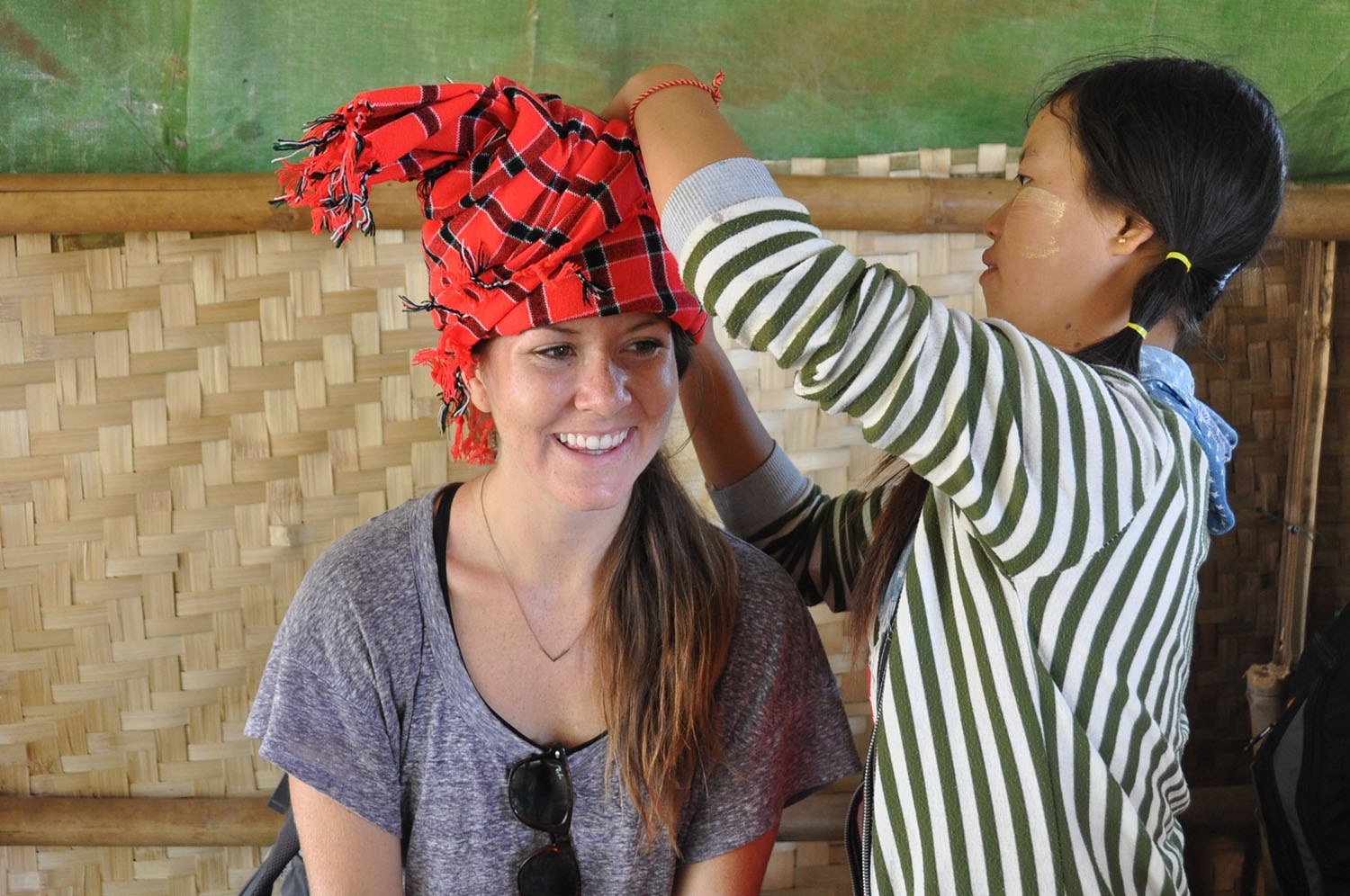
26. Understand the tipping culture
Be sure to find out if tips are expected in the place you are visiting. And if so, what percentage is typical to tip? 5 percent? 10 percent? 20 percent? No tip at all? Brush up on your knowledge so you’re not caught in an awkward situation.
27. Think about your selfie
Consider the impact of your pictures. Each image snapped has consequences – be it good or bad, and it’s easy to get so caught up in the click of a shutter that we forget who or what it will affect.
Tourists lining up in the hundreds to snap a picture in the water with a whale shark is what has kept them in relative captivity, unable to feed themselves. It has also polluted the surrounding ocean in the Philippines.
Taking a nude picture on a sacred mountaintop may seem like an act of spontaneity, but is deemed as blatant disrespect of local culture. Let’s all try to think before we snap.
28. Your words & pictures matter
Think about how you are representing the culture you see. Your pictures may be the only exposure some people have to what you are experiencing, and including demeaning descriptions or hashtags can spread negativity and misunderstanding. We appreciate sarcasm just as much as the next person, but be careful how you use it.
Interact with Locals
One of the best parts of travel is interacting with locals. Be sure you’re doing so mindfully.
29. Ask before taking photos
If you want to take a photograph of someone, ask first. If they don’t speak the same language as you, make eye contact, show them your camera, and wait for their response. If they nod their head, “yes” take a photo or two. If you think it’s appropriate, you can show them the picture too.
Many people, especially in impoverished parts of the world, don’t have many pictures of themselves, so it’s a cool experience for them to see it. If someone shakes their head “no,” respect their privacy and move on. There are plenty of people who wouldn’t mind being photographed.
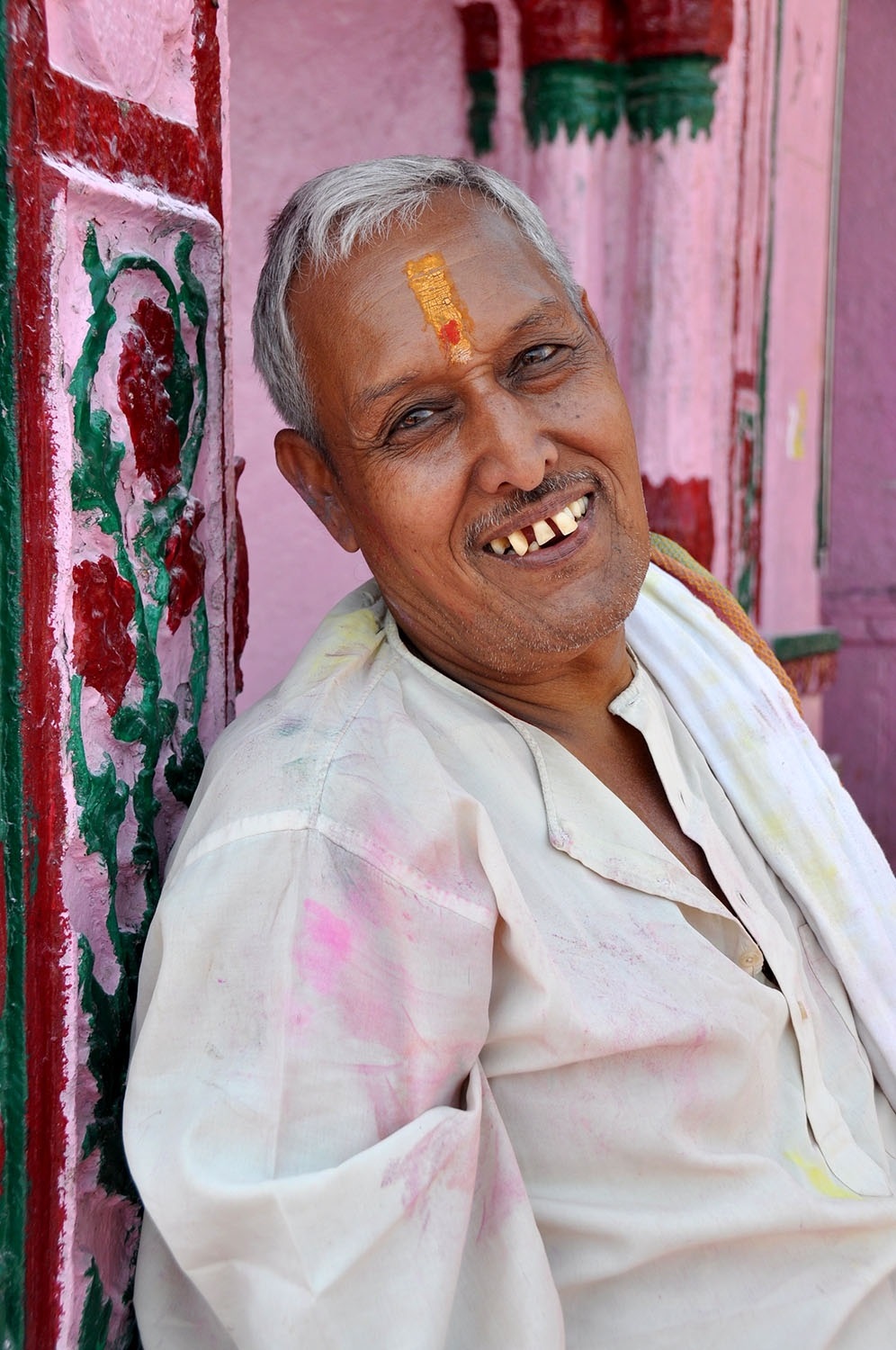
30. Speak the language
Try to learn a few phrases in the language of your host country. Some words we always try to learn are “hello” and “thank you”. You’d be surprised just how far those words will get you.
Go an extra step and learn at least one other fun phrase like, “How are you?” “Beautiful,” “Delicious,” or “See you later” to show the locals you’re trying. You’ll get some pretty great reactions!
And to communicate further, download Google Translate. It is an incredibly powerful app and will give you the ability to really connect with locals despite not being fluent.
31. Be kind
Smile and treat everyone you meet with respect. If you are frustrated, take a deep breath and think before speaking. Kindness can go a long way.
Don’t Contribute to the Cycle of Poverty
You might not even realize how your actions can make a ripple effect. Make sure it’s a good one.
32. Bargain respectfully
Remember that the person who you are buying from needs to make a living. In many countries it’s okay to barter – and is even expected. But don’t take advantage of this. Be prepared to pay fairly.
33. Research the tour companies you choose
Try to support local companies as opposed to global ones, and be sure they pay their employees fair wages. You’d be surprised how much information is out there on company websites and review sites like TripAdvisor.
Bonus points if you find a company that gives back to the local community, supports education or is benefitting the environment.
34. Give the right way
Refrain from giving money or candy to children on the street. Doing so often encourages them to skip school in order to beg. If you would like to help financially, research organizations in the area that support those in need with food, shelter and education.
35. Do your research before volunteering
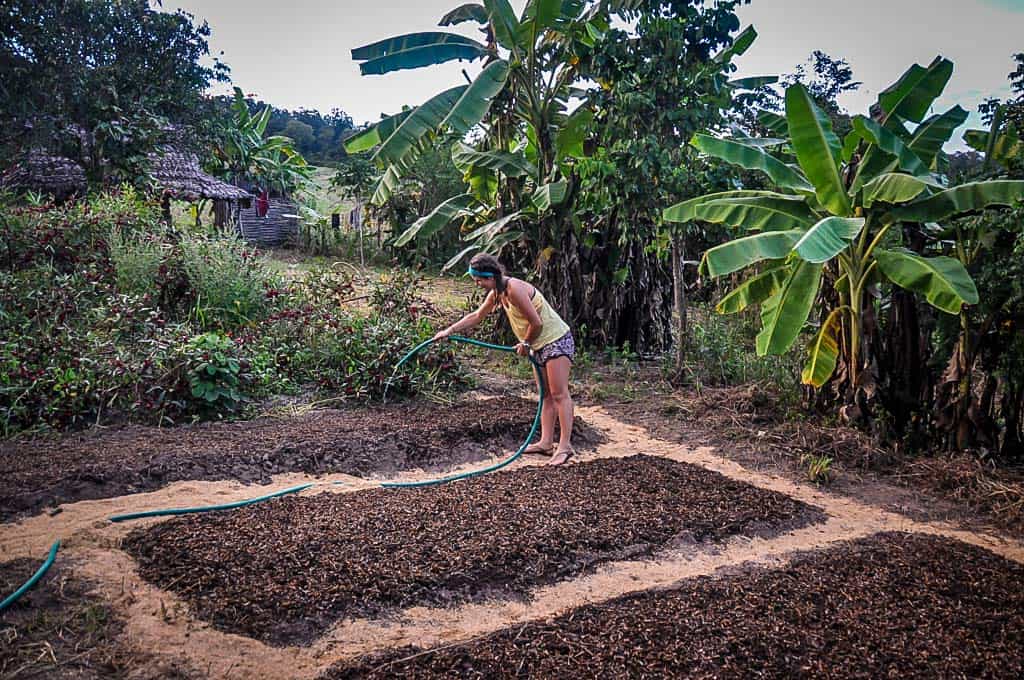
If you want to volunteer while abroad, research organizations thoroughly. Many programs are unsustainable and cycle through volunteers quickly, while these jobs could be given to locals.
Many times these programs are created with the foreigners’ experience in mind rather than considering what is best for the community involved. And positive change can be slow because some organizations capitalize on showing volunteers “poverty.”
Advancing a village wouldn’t provide new volunteers with the photo opportunities they seek, so communities stay in a state of perpetuated poverty for longer than necessary.
Corruption in the “Voluntourism” industry is not uncommon.
Yes, there are some truly great organizations around the world, but they require a bit of digging to find.
Read up on how to volunteer abroad ethically and do some research on “Voluntourism” to understand this complex issue better.
36. Understand the country’s current events
Research what’s going on in the country you’re visiting. What are the current issues? Slave labor? Human trafficking? Pay attention to where your money is going so you aren’t unknowingly supporting these practices.
For example, while in Thailand we learned that eating seafood from this country is contributing to modern day slavery and trafficking. We ate a few too many Tom Yum soups with shrimp before figuring this out. Looking into current issues ahead of your visit will help you from making mistakes like we did.
Related Post: Find out how to travel ethically in Thailand
Interested in learning more about Responsible Travel?
We are passionate about traveling in a way that is ethical, sustainable and responsible. Visit our resources page on Responsible Tourism to learn more about how you can create a positive impact everywhere you travel! Or read some of our favorite articles on responsible travel below…
- How to Volunteer Abroad Ethically
- Eco-Friendly Products for Responsible Travelers
- Simple Ways to Reduce Your Plastic Use Everyday
- What is Sustainable Tourism & What It Looks Like Around the World
Save this article on Pinterest for later!
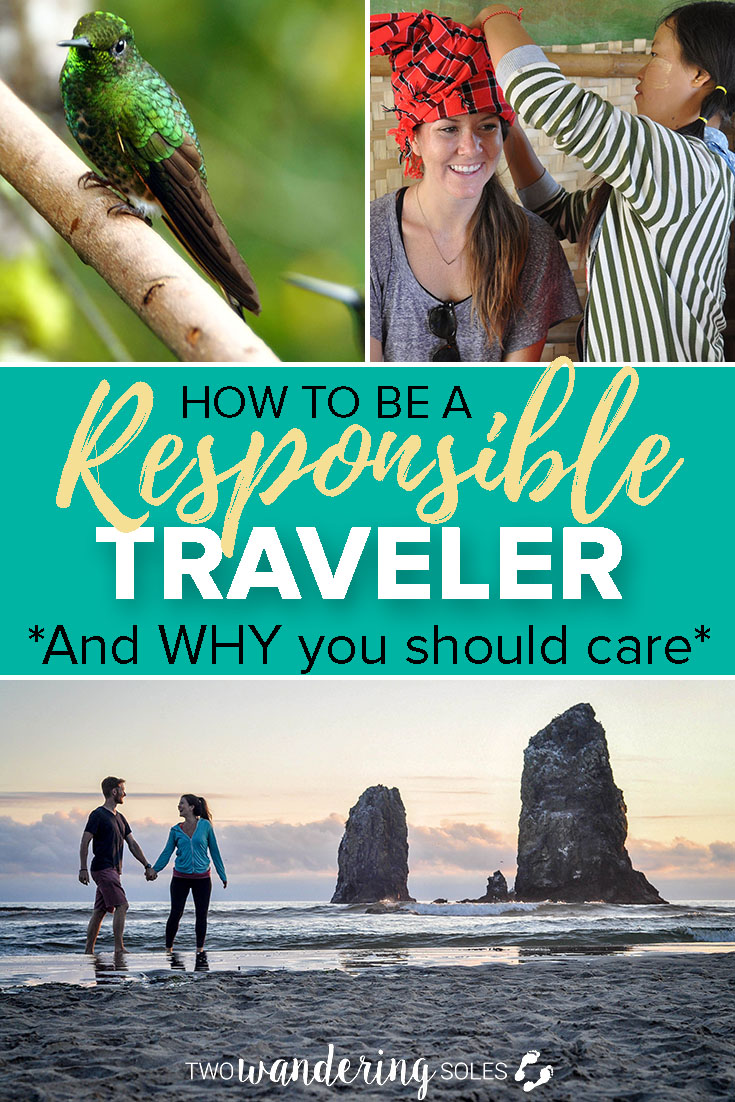
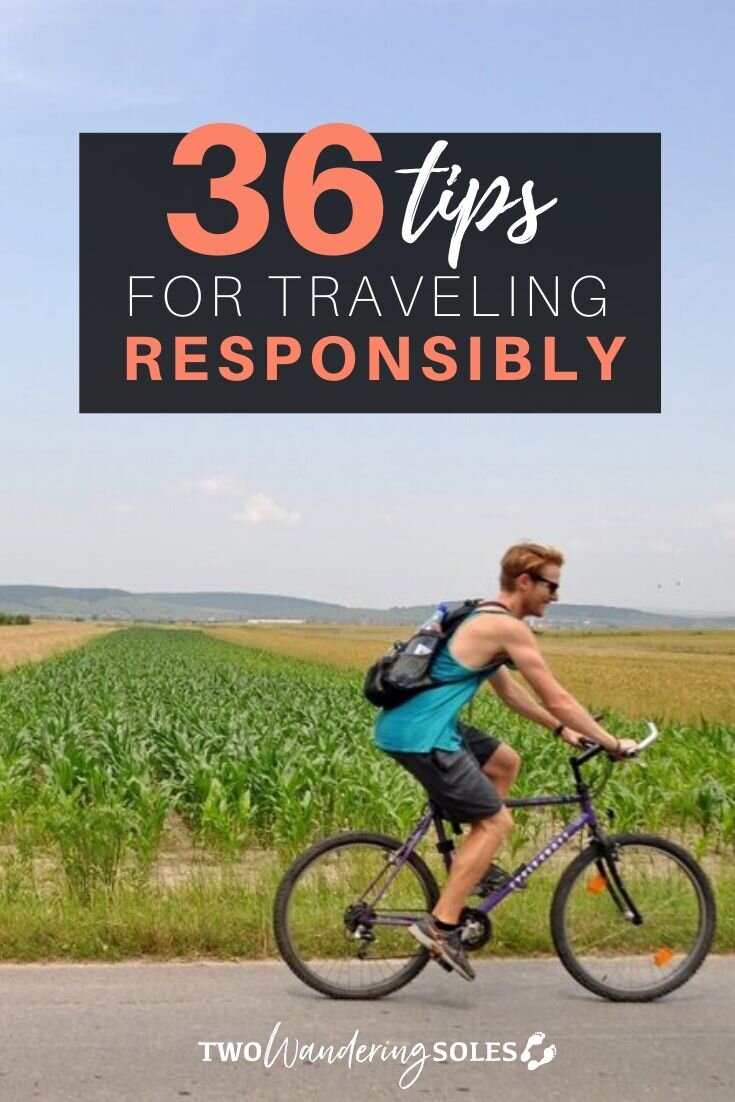
We want to hear from you!
What other tips do you have? How do you travel consciously and in a way that will make this world a better place? We’d love to hear from you!

One of the best travel articles I have read recently, sensible and very considerate suggestions. Thank you for sharing.
Thank you very much!
Wow! such a fantastic and fabulous blog. Thank you for share beautiful and wonderful pictures and about Travel. This is amazing and awesome post.
Thank you very much.
Such a great post guys! Your tips are great not only for first-time travelers but also act as a good reminder for frequent travelers as well. Thanks for sharing!
Thank you so much for the compliment!
This is a great post Katie. As more and more people travel, it becomes increasingly important to ‘do the right thing’. We all share this one big beautiful planet and need to treat it and its inhabitants (human and animals) with love and respect.
Julie | 2checkingout
Well said Julie! Thanks for continuing to spread the word of responsible travel.
Thank you for many great tips and i agree … travelling is learning , respect each culture …
Happy to connect with likeminded souls <3
Love this article and learned so many great tips! The more we travel the more we learn about sustainable travel. Today in Alaska we spent some time at the sealife center and learned a lot about protecting the sea and spent some time with animals in rehabilitation programs. It was an amazing experience and we left more knowledgable about what we can do to help.
I’m so happy it was helpful, Lena. Traveling ethically is a constant learning process, and we are finding out new ways to be better every day. I bet that was super interesting seeing the animal rehabilitation programs in Alaska. I think that is the best way to see animals while traveling (or even at home). You can learn so much from them, and your money goes to something worthwhile. Alaska is a place we’ve been itching to get to, so we’ll have to look out for some of those organizations when we finally make it there. Thanks for sharing!
Love this post! We love to eat with the locals and it Always tastes 1000% better than some of the fancier places. Fresh ingredients and home cooked. YUM. So happy to see that you don’t support animal tourist attractions as this is something me and my boyfriend feel very strongly about. Looking forward to seeing more 🙂
Hi Sally! What a nice comment 🙂 We completely agree – the best meals in all our travels have been at the little family-run restaurants with plastic chairs and kids running around. It’s definitely the most authentic food you’ll ever get!
And it’s always reassuring to hear of others who are passionately against supporting animal attractions. It has been kind of a hard thing to accept, since many people share seemingly awesome pictures right next to whale sharks or cuddling koalas, and sometimes I think it would be fun to get that close. But every time when I do the research, I realize that no picture is worth putting an animal in danger. And it’s not worth it to us to support those organizations or encourage others to do so. Sadly, I think many people have good intentions, they just don’t know how bad these practices are for the animals involved.
Keep on doing your best to travel ethically and consciously! Every action and effort (no matter how small) is felt by someone. xo
This is an awesome post! I always try to travel (and live) conciously but there are many things I can do better! Thanks!
We’re so glad you enjoyed it, Eveline. Traveling/Living consciously is something we all can work on — nobody does it perfectly, and there’s always room for improvement 🙂 We’ve learned many of these tips through making our own mistakes, and I’m sure we will continue to make mistakes. But as long as we are trying our best, the world will be a little brighter!